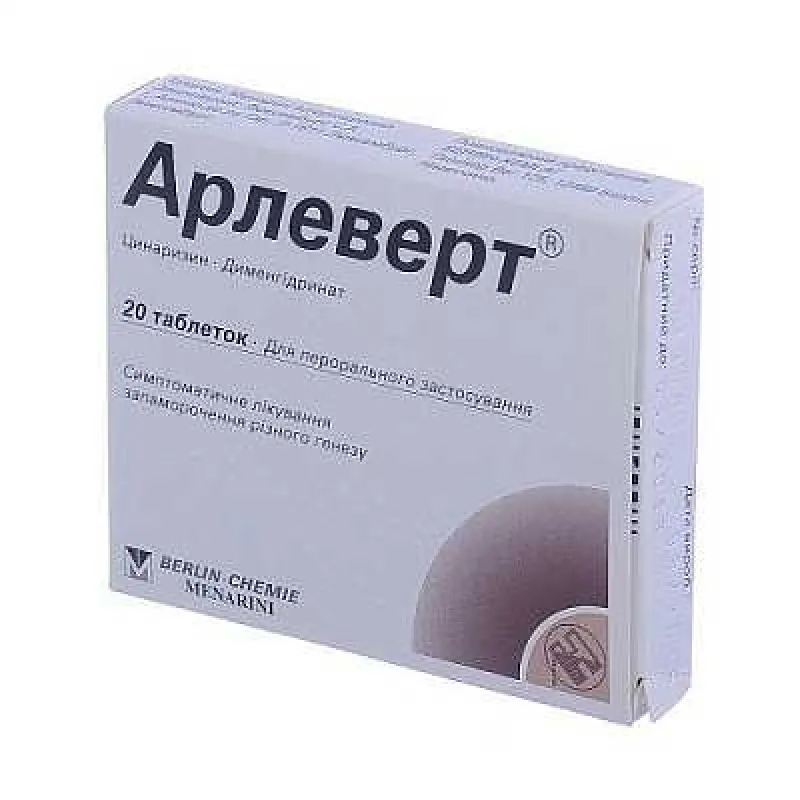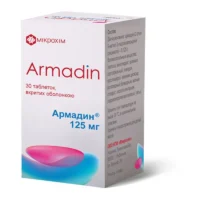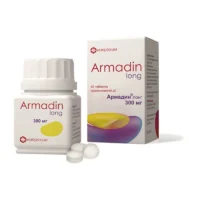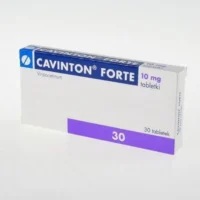Description
Arlevert (Cinnarizine, Dimenhydrinate) Tablets
Composition
Active ingredients: Cinnarizine, Dimenhydrinate
Mechanism of Action
Pharmacological Properties: Cinnarizine acts as a calcium channel blocker, reducing the excitability of the vestibular system. Dimenhydrinate is an antihistamine that helps alleviate nausea and vomiting associated with vertigo. The combination of these ingredients provides a synergistic effect in managing vestibular symptoms.
Indications for Use
Arlevert tablets are indicated for the treatment of vertigo and dizziness associated with Meniere’s disease and other vestibular disorders.
Contraindications
Do not use Arlevert tablets if you are allergic to any of the ingredients, have Parkinson’s disease, or are pregnant.
Side Effects
Common side effects of Arlevert tablets may include drowsiness. It is advisable to avoid driving or operating heavy machinery while taking this medication.
Usage Instructions
Take Arlevert tablets orally with water, preferably after meals to reduce gastrointestinal irritation. The recommended dosage is 1 tablet three times a day.
Benefits Compared to Analogues
Arlevert tablets offer a combination of cinnarizine and dimenhydrinate, which has been clinically proven to effectively reduce vertigo symptoms and improve quality of life in patients with vestibular disorders.
Suitable Patient Groups
Arlevert tablets are suitable for adult patients with vertigo and vestibular disorders. Consult a healthcare provider for use in specific patient groups such as children or the elderly.
Storage and Shelf Life
Store Arlevert tablets in a cool, dry place away from direct sunlight. Check the expiration date on the packaging and do not use the product after the specified shelf life.
Packaging Description
Arlevert tablets are available in packs containing 20 tablets.
Clinical Evidence and Proven Effectiveness
Studies have shown that the combination of cinnarizine and dimenhydrinate in Arlevert tablets effectively reduces vertigo symptoms and improves quality of life in patients with vestibular disorders. Research published in the International Tinnitus Journal demonstrated the efficacy of cinnarizine and dimenhydrinate in managing vertigo symptoms.
A randomized controlled trial published in the Journal of Neurology compared the efficacy of Arlevert tablets with a placebo in patients with Meniere’s disease. The study found that patients receiving Arlevert experienced a significant reduction in vertigo attacks and improved balance compared to the placebo group.





